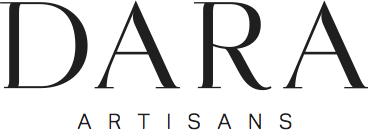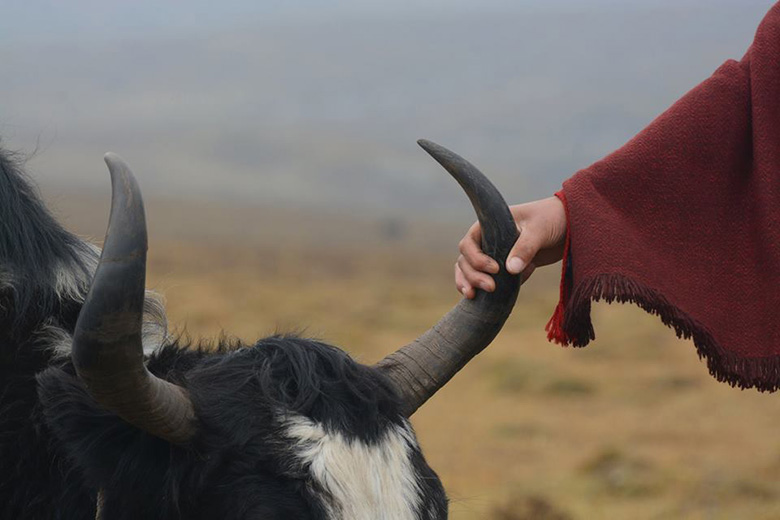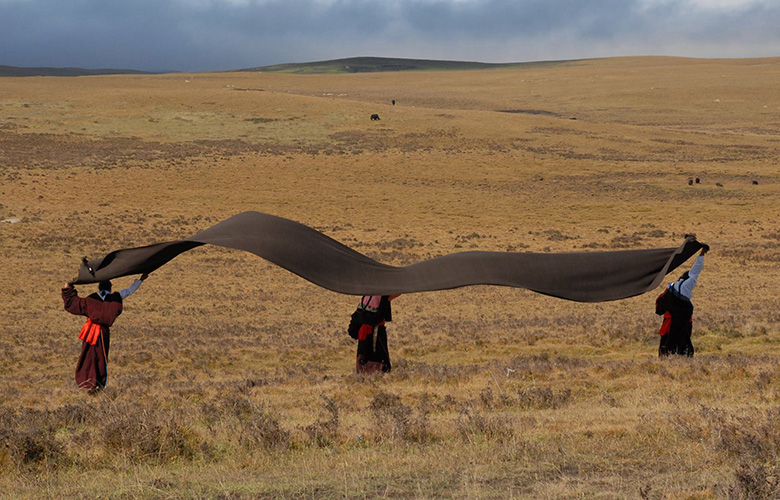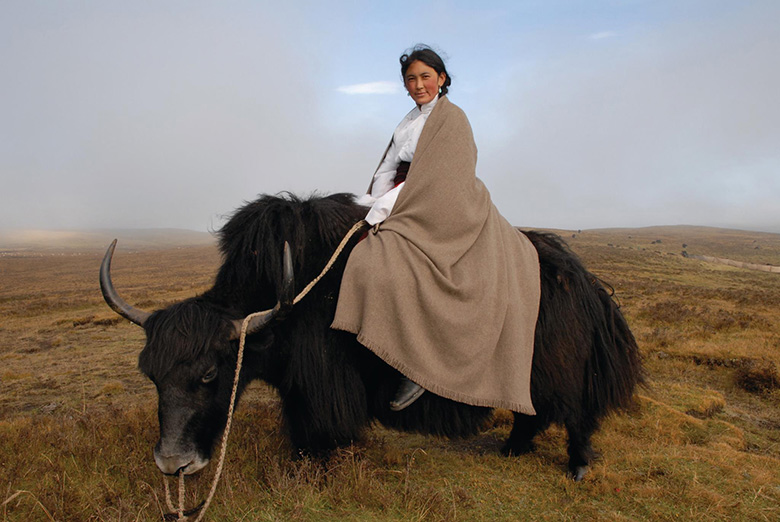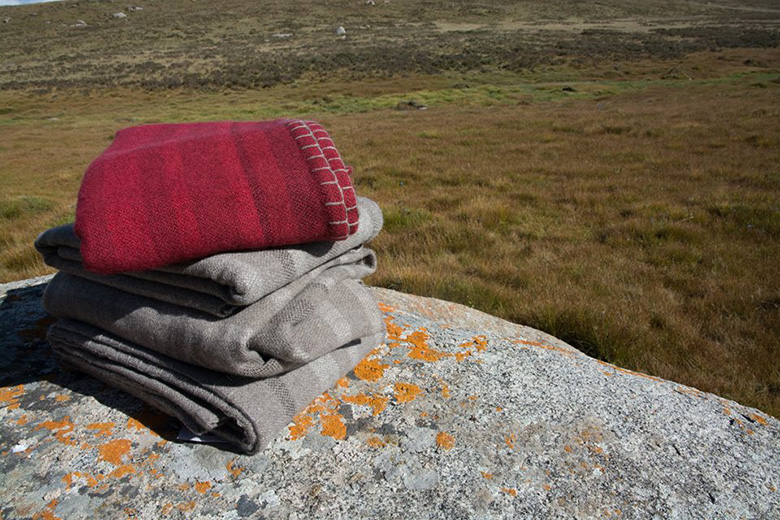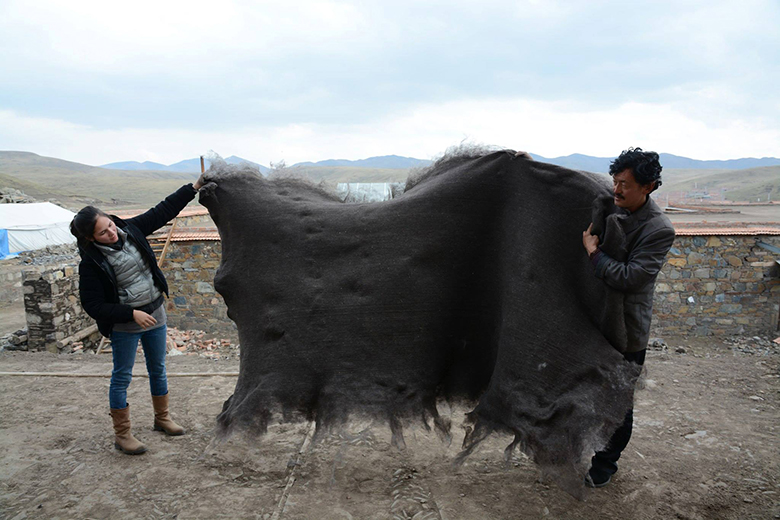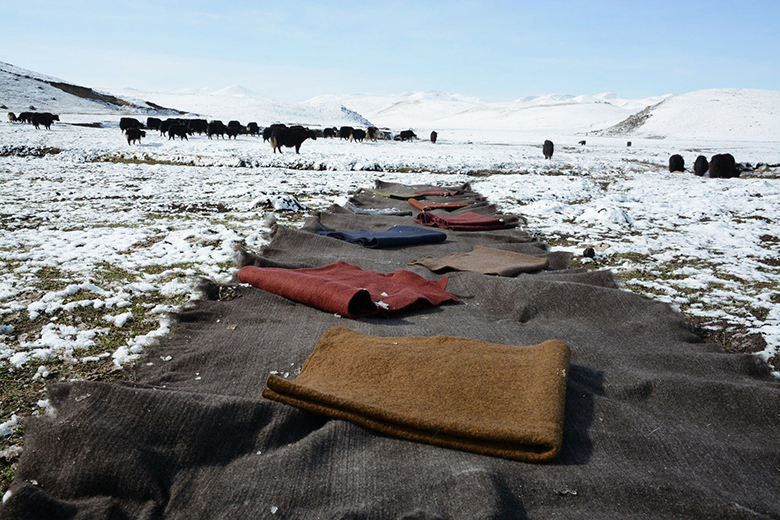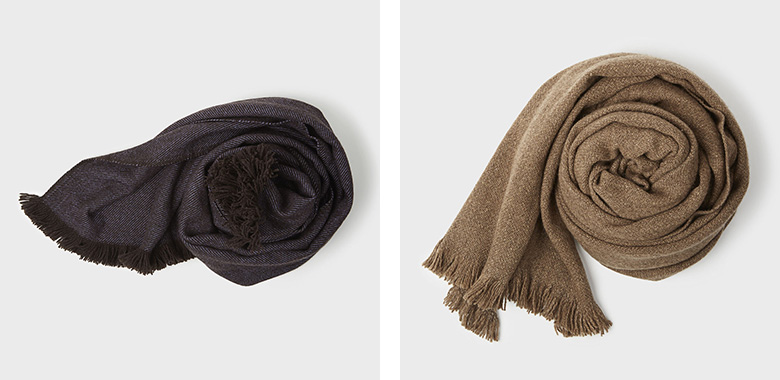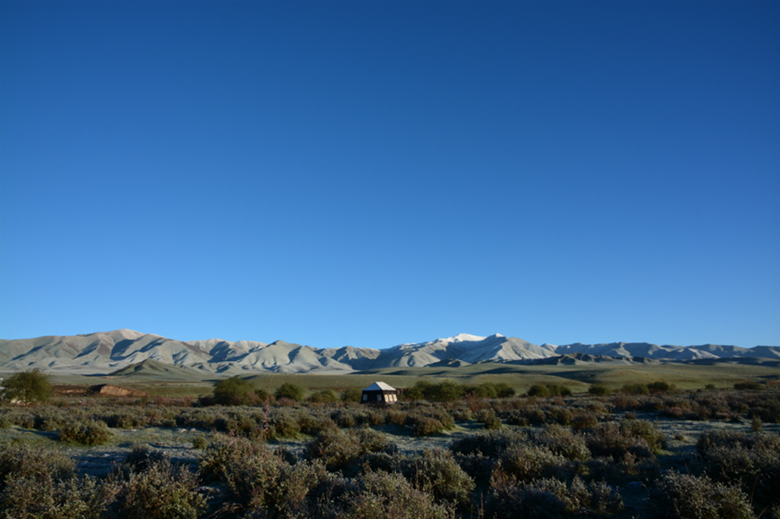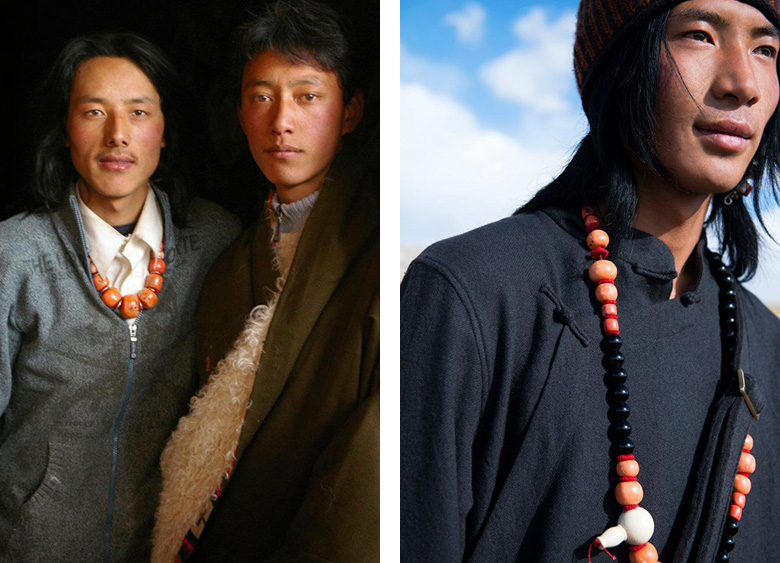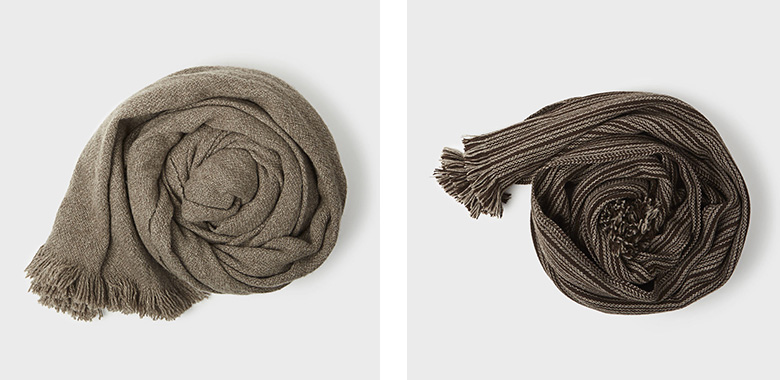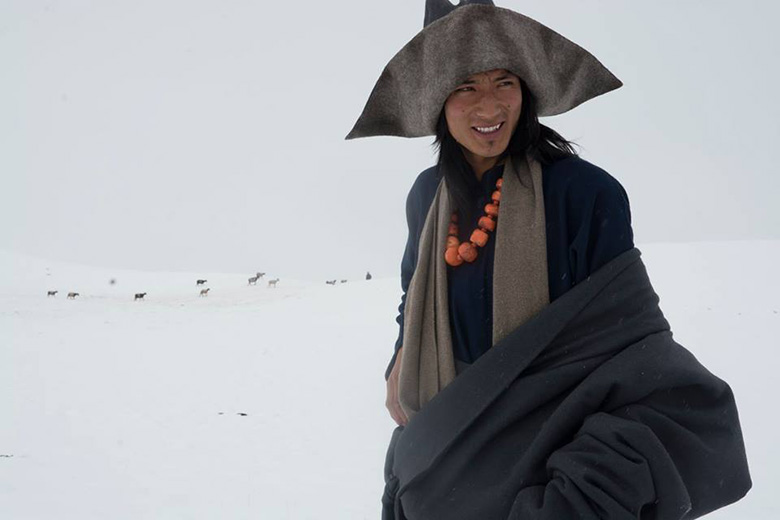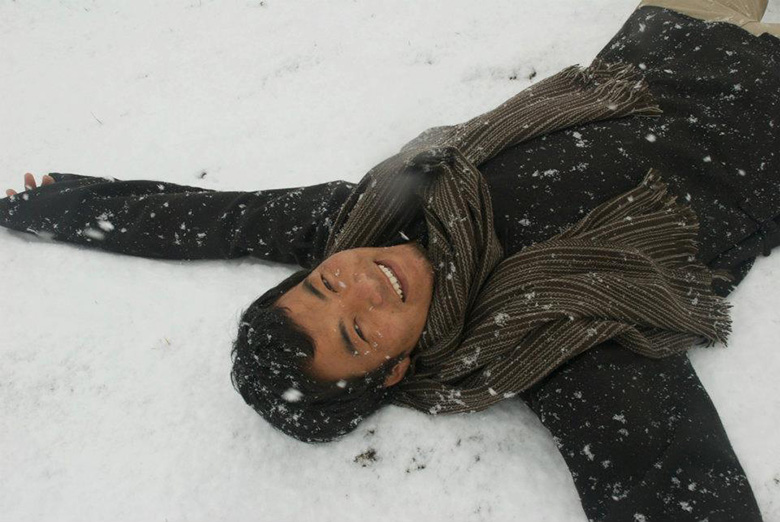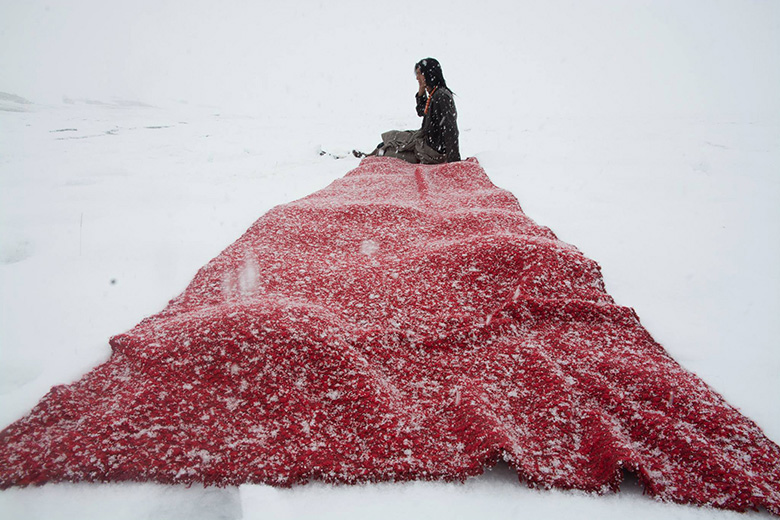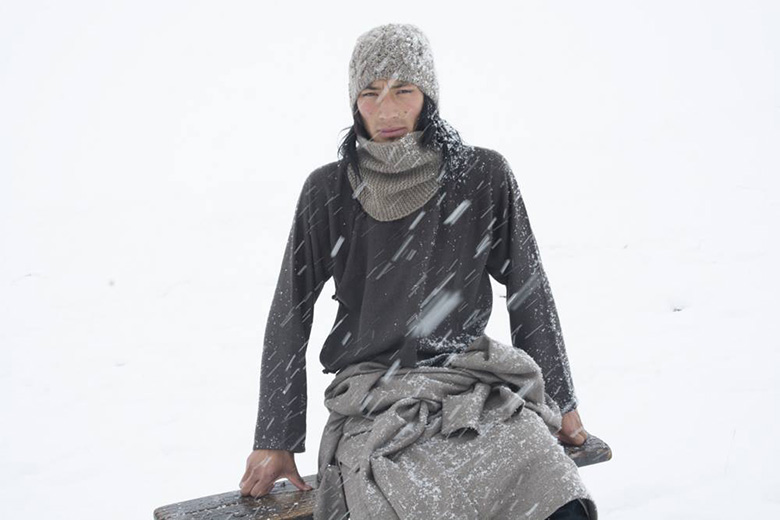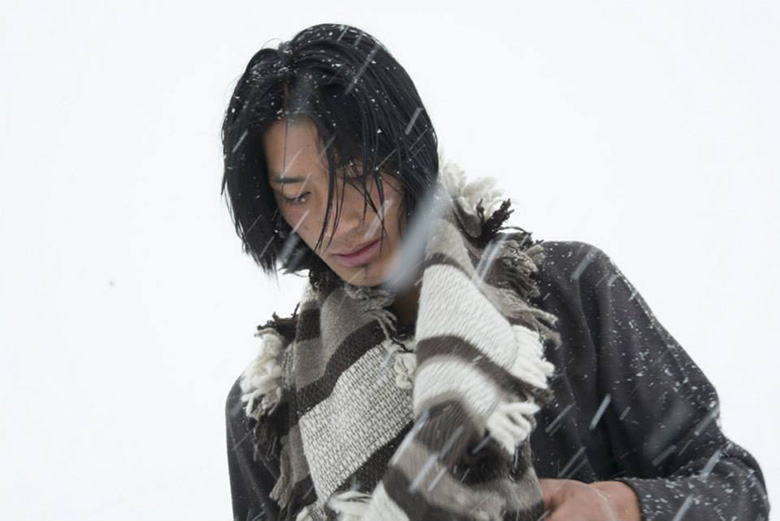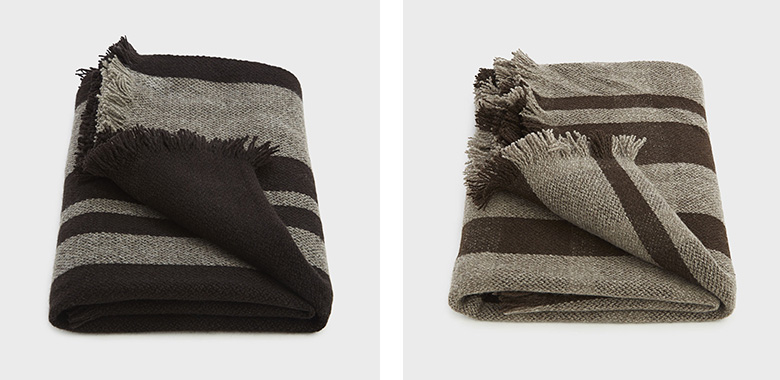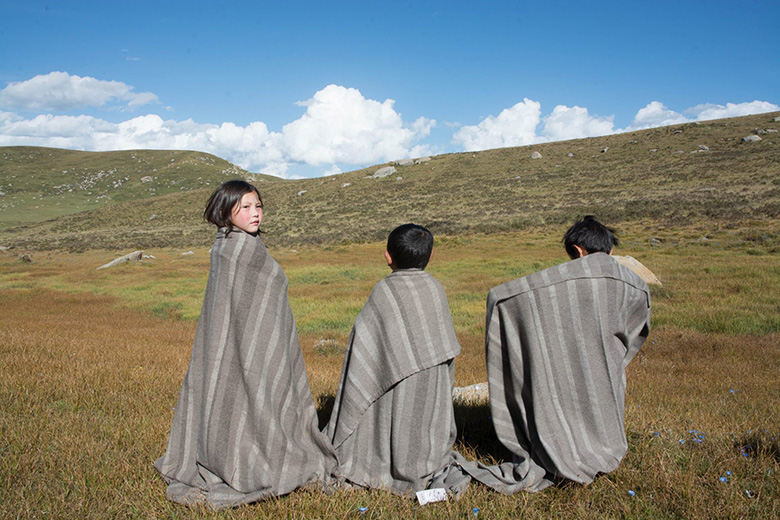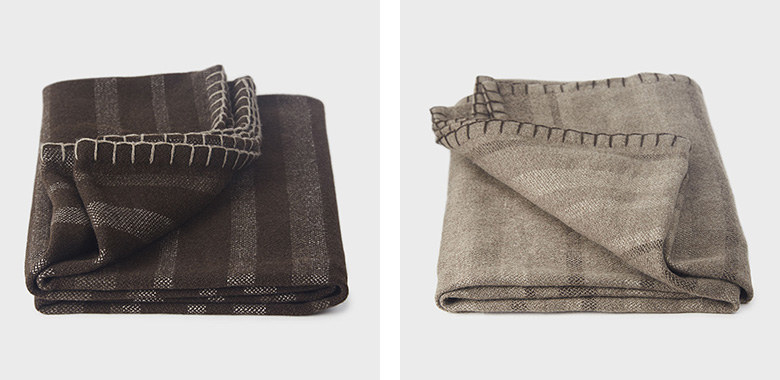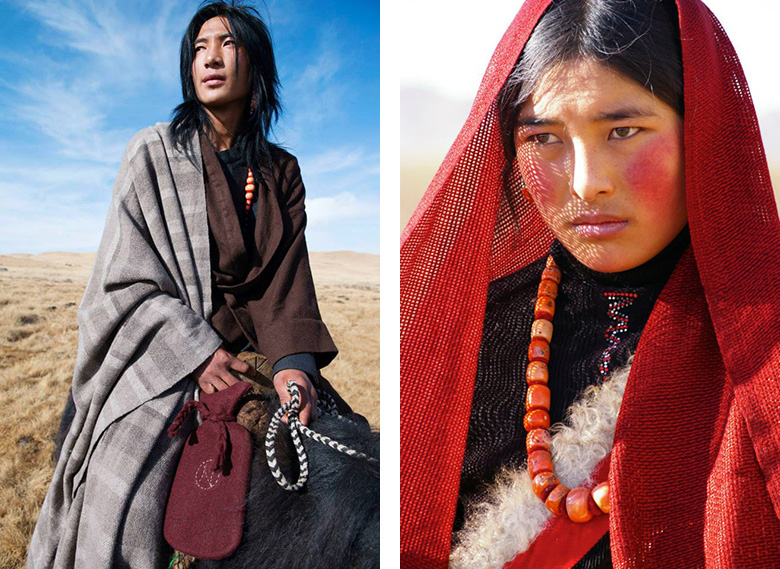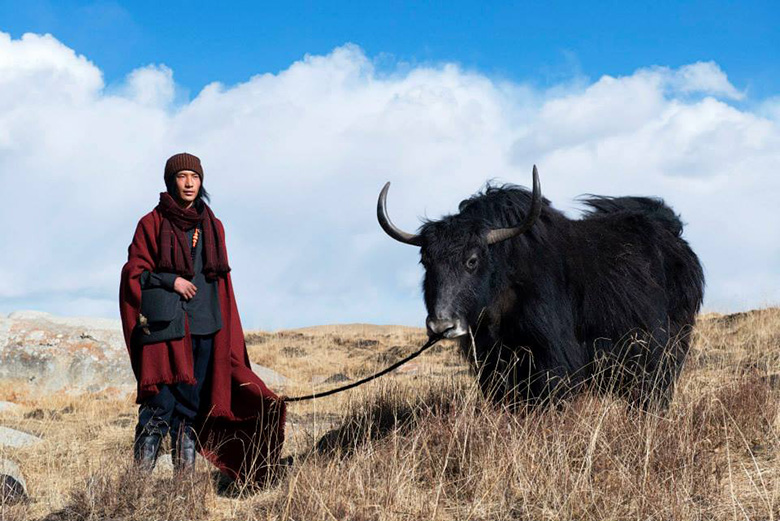Norlha : Material Investment
An innovative designer finds a wealth of opportunities on the Tibetan Plateau.
Taking its name from a Tibetan phrase meaning “wealth of the gods,” Norlha produces luxury accessories using yak wool. This material is a rather unusual choice: Though they’re critical to the largely nomadic inhabitants of the Tibetan Plateau, yaks aren’t typically known for their supple, luxurious coats. Their hair is thick, coarse, knotty—a formidable blanket.
Yet Norlha co-founder Kim Yeshi had a hunch. After 30 years researching Asian textiles, she learned that tucked beneath the tough exteriors was a soft woolen underbelly. “I had worked with camel wool and cashmere before, but had heard about yak wool,” Yeshi says. “I knew it could very challenging to work with, but also very special.”
“I had worked with camel wool and
cashmere before, but had heard about yak wool . . .
I knew it could very challenging to work
with, but also very special.”
________
After dispatching her two children to a remote part of the Tibetan Plateau to collect fiber samples from yaks in 2005, Yeshi took her plans to spin and weave it to Nepal. “In China and Tibet, the looms were either extremely primitive or very automatic and industrial,” Yeshi says. “They never had that sort of in-between process, good for village-level enterprise.” Using Nepali-weaving techniques on Indian looms, the material was exceptionally luxurious, durable, supple, and warm, and an enterprise was born.
With Yeshi’s daughter, Dechen, leading the on-site activity, the Norlha workshop was established in Zorge Ritoma, a village in Tibet’s Amdo region with 1,500 nomadic inhabitants and 6,000 yaks. “We brought in these simple looms from India—imported technology from British Industrial Revolution—along with instructors,” Yeshi says. The Tibetan artisans proved to be unusually apt. “They had this innate ability to spin and weave; they picked it up within a half an hour. You almost think it’s genetic. It came very naturally.”
The Tibetan artisans proved to be
unusually apt. “They had this innate ability
to spin and weave; they picked it up
within a half an hour. It came very naturally.”
________
Norlha’s clients now include Parisian fashion houses Louis Vuitton, Lanvin, and Balmain, yet it’s in Zorge Ritoma where the company’s impact is most felt. Yeshi estimates about half of the village’s families have a member employed by her workshop. Nearly everyone is impacted by the business. “When you’re in a small village, an additional salary in the family has consequences,” Yeshi says. “It can mean people are buying more, encouraging other community members to open shops. Or, because they’re now working, they’re too busy to cook, so restaurants will open. Even if they’re not working for us, we’ve created livelihoods for others around them.” By offering the people of Ritoma the opportunity outside of their traditional nomadic practices, Norlha has created a diversified economy in which creative skills and industry are rewarded—all while wrapping us up in the wealth of the Tibetan Plateau.
By offering the people of Ritoma the
opportunity outside of their traditional nomadic practices,
Norlha has created a diversified economy
in which creative skills and industry are rewarded.
________
Shop Norlha
